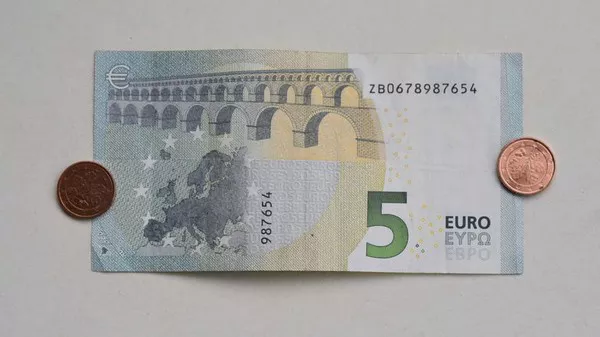The Euro, one of the world’s most prominent currencies, has been experiencing a significant decline in value over the past few years. This decline has caused some concern among investors and economists alike, as it suggests that there may be underlying issues with the European economy.
The Euro’s recent decline can be attributed to several factors, including economic instability within certain European countries, political uncertainty, and currency manipulation by other nations. Additionally, the global pandemic has had a profound impact on the European economy, leading to decreased economic activity and increased government debt.
Economic Instability
One of the primary drivers behind the Euro’s recent decline is economic instability within certain European countries. Countries such as Greece, Italy, and Spain have all experienced significant economic challenges in recent years, which have had a negative impact on the overall health of the European economy.
In particular, Greece has struggled with high levels of debt and unemployment, which have put significant strain on the country’s economy. As a result, the Greek government has been forced to take drastic measures to address these issues, including implementing austerity measures and seeking financial assistance from international organizations such as the IMF and the EU.
Similarly, Italy has faced significant economic challenges in recent years, including high levels of debt and political instability. The country’s ongoing political turmoil has made it difficult for the government to implement reforms to address these issues, which has only added to the Euro’s decline in value.
Political Uncertainty
In addition to economic instability, political uncertainty has also played a role in the Euro’s recent decline. The ongoing Brexit negotiations, for example, have created significant uncertainty for both the UK and the rest of Europe, leading to decreased investment and increased volatility in the financial markets.
Similarly, the rise of nationalist and populist movements in several European countries has also contributed to political uncertainty, as these movements often promote policies that are at odds with those of the EU. This has led to concerns about the long-term stability of the European Union, which has further weighed on the value of the Euro.
Currency Manipulation
Another factor that has contributed to the Euro’s decline is currency manipulation by other nations. China, for example, has been accused of manipulating its currency to gain a competitive advantage in international trade, which has had a negative impact on the value of the Euro and other major currencies.
Similarly, the US has also been accused of manipulating its currency through its monetary policy, which has led to concerns about the long-term stability of the global financial system. These concerns have only added to the Euro’s decline in value, as investors seek out safer investments in uncertain times.
Impact of the Pandemic
Finally, the global pandemic has had a profound impact on the European economy, leading to decreased economic activity and increased government debt. The lockdowns and restrictions put in place to slow the spread of COVID-19 have had a significant impact on businesses across Europe, leading to decreased revenue and increased unemployment.
Similarly, governments across the region have been forced to implement massive stimulus packages to support their economies, which has resulted in significant increases in government debt. These factors have contributed to the Euro’s decline in value, as investors become increasingly concerned about the long-term health of the European economy.
Conclusion
In conclusion, the Euro’s recent decline in value can be attributed to a combination of factors, including economic instability within certain European countries, political uncertainty, currency manipulation by other nations, and the impact of the global pandemic. While it remains to be seen how these factors will ultimately play out, it is clear that they have already had a significant impact on the European economy and the value of the Euro.
Investors and economists will need to closely monitor these trends in the coming months and years to determine whether the Euro can regain its strength, or if it will continue to decline in value. Regardless of the outcome, it is clear that the Euro’s recent struggles have highlighted some of the underlying challenges facing the European economy, and underscored the need for continued reforms and investment to support long-term growth and stability.
Related topics:


